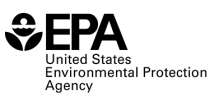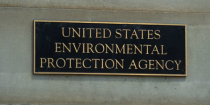Tox of the Town
Visit the Full BlogWhere the Law and the Environment Connect. Tox of the Town is a blog written by attorneys in Greenberg Glusker’s Environmental Law Group. With years of legal, technical, and business know-how experience, we look forward to providing our readers with timely updates on environmental issues. Subscribe to our blog today to receive updates on changing environmental laws, regulatory and compliance issues, ongoing litigation, and more.

US EPA Designates Two PFAS Compounds as "Hazardous Substances" Under CERCLA
It's finally happened. The US Environmental Protection Agency has designated two widely used PFAS compounds, PFOA and PFOS, as "hazardous substances" under CERCLA. PFAS are man-made chemicals used for decades and found in many different commercial, industry, and consumer products. EPA's designation will have far-reaching liability implications. In a...

Update: SEC Voluntarily Stays Climate Regulations
On April 4, 2024, rather than waiting for the Eighth Circuit to issue a ruling on plaintiffs’ pending emergency motion for an administrative stay of the SEC’s final rule regarding the Enhancement and Standardization of Climate-Related Disclosures for Investors , the SEC opted to issue its own stay , preventing...

CARB and the Attorney General Defend California's Groundbreaking Climate Change Disclosure Laws in Court
As previously posted , in a landmark legal challenge, a coalition led by prominent business federations is challenging California's pioneering climate disclosure laws, Senate Bill 253 (the Climate Corporate Data Accountability Act) and Senate Bill 261 (the Climate-Related Financial Risk Act). These laws mandate unprecedented disclosure of climate-related financial...

California's Climate Disclosure Mandates Face Legal Challenges
In a landmark legal challenge, a coalition led by prominent business federations is challenging California's pioneering climate disclosure laws, Senate Bill 253 (the Climate Corporate Data Accountability Act) and Senate Bill 261 (the Climate-Related Financial Risk Act). These regulations mandate unprecedented disclosure of climate-related financial risks and greenhouse gas emissions...

What to Know About the Recent OEHHA Hearings
The California Proposition 65 short-form warning saga continues. We authored articles in both Bloomberg Law and Corporate Compliance Insights to discuss what businesses should know from the recent California Environmental Protection Agency's Office of Environmental Health Hazard Assessment (OEHHA) hearings. California's Proposition 65 short-form warning changes proposed by OEHHA could significantly affect...

Modernization of Cosmetics Regulation Act - What Companies Need to Know
Beginning on December 29, 2023, the Modernization of Cosmetics Regulation Act (MOCRA) became effective. Signed into law on December 29, 2022, MoCRA significantly expands the U.S. Food and Drug Administration’s (FDA) authority to regulate cosmetic products and related businesses by adding section 607 to the Federal Food, Drug, and Cosmetic...

Eco-Friendly Marketing Claims Face Scrutiny by State Lawmakers
In today's eco-conscious world, consumers are showing a growing preference for environmentally responsible companies. In a recent Bloomberg article, I spoke with staff correspondent Brenna Goth to discuss the importance of companies being truthful and cautious when making environmental benefit claims in their marketing efforts. My quotes are featured below. ...

OEHHA Proposes Sweeping Changes to California’s Proposition 65 Warning Requirements
On October 27, 2023, the Office of Environmental Health Hazard Assessment (OEHHA), the lead California regulatory agency tasked with implementing California’s Proposition 65, proposed significant changes to the Proposition 65 warning requirements that may impact businesses’ Proposition 65 compliance strategy. In particular, OEHHA is once again considering changes to the...

Wildfires and its Implications for Companies
As the world grapples with the increasing impact of climate change, one pressing issue is the management of air quality in the workplace. In a recent CNBC article, I spoke with reporter Cheryl Winokur Munk to discuss the importance of companies understanding the regulations and best practices surrounding air...

U.S. Supreme Court Declines to Review Decision Blocking Prop. 65 Acrylamide Cancer Lawsuits
For those following the acrylamide saga (see, e.g., our earlier blog post ), on Monday of this week, the U.S. Supreme Court declined to review the injunction blocking new Prop. 65 lawsuits as to cancer warning labels on foods containing acrylamide: By way of background, Prop. 65 requires businesses...

The EPA's New Enviro Site Assessment Standard: Key Points
On Dec. 15, 2022, after a yearlong wait, the U.S. Environmental Protection Agency took final action to approve the new ASTM International standard for conducting Phase I environmental site assessments, officially known as ASTM E1527-21, "Standard Practice for Environmental Site Assessments: Phase I Environmental Site Assessment Process." This action...

What is Greenwashing?
In a recent webinar, "Greenwashing and its Dirty Consequences," I spoke about what greenwashing is, some examples, types of claims, and referencing the Federal Trade Commission's Green Guides for guidance. What is greenwashing? That is the question of the day. There is not one regulatory definition of what greenwashing...

California’s Proposition 65: New “Safe Harbor” Warning Option for Acrylamide
Acrylamide, a Proposition 65-listed substance that naturally forms in the cooking and heating of many plant-based foods, has been the focus of regulatory and court action over the past few years. As we previously reported , there is currently an injunction preventing Prop 65 enforcers from filing or prosecuting...

At Last - EPA Approves the New ASTM Phase I Environmental Site Assessment Standard
On December 15, 2022, the United States Environmental Protection Agency (EPA) took final action to approve the new ASTM International standard for conducting Phase I environmental site assessments. As previously noted , ASTM adopted the revised standard, officially known as ASTM 1527-21, last year. The revised standard represents best practices for...

Update on California’s Regulation of PFAS – Governor Newsom Vetoes AB 2247
Last month, we reported regarding recent actions taken by the California Legislature in the regulation of per – and polyfluoralkyl substances (“PFAS”). By way of background, PFAS are man-made chemicals used for decades and found in many different commercial, industry, and consumer products such as non-stick cookware and water...

ASTM Adopts a New Phase I Environmental Site Assessment Standard
Environmental Partner, Sedina Banks, published "ASTM Adopts a New Phase I Environmental Site Assessment Standard" in the Fall 2022 issue of NAIOP's Development Magazine. In her article, she discusses the revisions made to ASTM's Phase I environmental site assessment standard and how it will affect commercial real estate transactions. Sedina...

Recent Developments in the Regulation of PFAS
In response to the growing concern regarding per – and polyfluoralkyl substances (“PFAS”), the federal government and California have taken recent actions to regulate PFAS. By way of background, PFAS are man-made chemicals used for decades and found in many different commercial, industry, and consumer products such as non-stick...

Who is Subject to California's Proposition 65 Warning Requirements?
Environmental Law Partner, Sedina Banks, presented a webinar "California’s Proposition 65: Background, Compliance, and Strategy" to members of the Association of Corporate Counsel - Southern California and the International Society of Primerus Law Firms. In this video clip, she discusses who is subject to California’s Proposition 65 warning requirements.

Environmental Insurance: Paper Worth Millions
Your client calls frantic because he has just been served with a lawsuit from an adjacent property owner who claims that the historic dry-cleaning operations on your client’s property have contaminated the groundwater. The complaint seeks millions of dollars for cleanup costs. Another client calls. She wants to purchase...

Back to School for Administrators: New K-6 Ban List and Laws Regulating Art Supplies
As schools reopen and in-person learning resumes, school teachers and administrators should be aware of laws regulating the purchasing of art supplies in schools. A preview of some of these laws is as follows: The California Education Code (Cal. Education Code § 32064, et seq. ) prohibits the purchase...

Even Your Parking Structure Violates Prop 65
The Prop 65 “Clear and Reasonable Warnings” updates that became effective in August 2018 contain lots of traps for the unwary, including one that you might not have noticed: tailored Prop 65 warnings are required at each of the public entrances to your enclosed parking facilities. To avail your regulated...

Shell Pays Big for Double Dipping with the UST Fund
Last week, the California State Water Resources Control Board (State Water Board) announced that it permanently banned 100 of Shell Oil Company’s underground storage tank (UST) claims from the California UST Cleanup Fund (Fund) for allegedly claiming reimbursement through false or misleading statements on its claim forms. The State...

California Supreme Court Finds that a Public Agency Cannot Inadvertently Waive Attorney-Client and Work Product Privileges
Last year, I wrote about the Second Appellate District case of Ardon v. City of Los Angeles . In Ardon , the appellate court found that a public agency can waive statutory privileges that it otherwise would have if it produces privileged documents in response to a California Public Records Act...
Can a Public Agency Inadvertently Waive Attorney-Client & Work Product Privileges? First and Second Appellate District Split on the Issue
In January, I wrote about the Second Appellate District case of Ardon v. City of Los Angeles . In Ardon , the court found that a public entity can waive statutory privileges that it otherwise would have if it produces privileged documents in response to a California Public Records Act (PRA...

Public Entities Can Inadvertently Waive Privilege in Response to a Public Records Act Request
California’s Public Records Act (PRA) law requires public entities to make their public records open for inspection and copying. Environmental practitioners often use PRA requests as a tool to obtain information regarding a contaminated or a potentially contaminated site. In a recent case, Ardon v. City of Los Angeles...

The Sunset Will Last a Little Longer - UST Fund Extended
On September 25, 2014, Governor Brown signed SB 445 (Hill) Underground storage tanks; hazardous substances: petroleum: groundwater and surface water contamination into law (UST Law). The UST Law was an urgency measure that took effect immediately. The UST Law makes changes to the Underground Storage Cleanup Fund (UST Fund...

CEQA Lead Agencies Do Not Waive Defense that CEQA Did Not Apply Despite Proceeding under CEQA
Recently, the court in Rominger v. County of Colusa found that a lead agency which approved a mitigated negative declaration for a project, can take the seemingly inconsistent position that the proposed project was not a California Environmental Quality Act (CEQA) project or was exempt from CEQA when its...
ASTM Issues New Standard For Phase I Environmental Site Assessments
On November 6, 2013, ASTM revised its standard for conducting Phase I environmental site assessments, known as Standard E1527-13 (entitled “Standard Practice for Environmental Site Assessments: Phase I Environmental Site Assessment Process”). ASTM E1527-13 is the first revision to the ASTM Phase I standard since its 2005 revision of the standard (known as...
City’s Decision to Not Prepare an EIR Upheld Under Substantial Evidence Standard
Earlier this month, in Latinos Unidos De Napa v. City of Napa, the California Court of Appeals upheld the city of Napa’s determination that it did not have to prepare an environmental impact report (EIR) under the California Environmental Quality Act (CEQA) when enacting minor changes to its general plan and...
California State Water Board’s Low-Threat UST Case Closure Policy Is Now Effective
On May 1, 2012, the California State Water Resources Control Board (SWRCB) adopted via Resolution No. 2012-0016 the Water Quality Control Policy for Low-Threat Underground Storage Tank Case Closure (Low-Threat Closure Policy). The Low-Threat Closure Policy finally became effective on August 17th. This should be good news for the thousands of UST sites in California...
- Page 1 of 3
- Next
